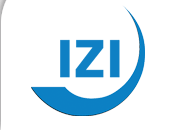|
>> Overview research
Explaining the Second World War and the Holocaust in an appropriate way
What German children know about the Second World War (2018)
Research in history pedagogy shows convincingly that children come into contact with clues and fragments of history and the topic Second World War from a very young age. Qualitative surveys have shown clearly that children possess islands of knowledge, e.g. about concentration camps, which they integrate into their worldview. But up until now, we have not known the level of knowledge or ignorance children in Germany possess or understood how this develops with age. In order to close this gap in the research in the context of the research topic “Explaining the Second World War and the Holocaust appropriately to children” the IZI carried out a representative study. It questioned n=840 German children between the ages of 6 and 13 on their knowledge of the topic of the Second World War and persecution during the National Socialist Period.
more...
Literature:
Götz, Maya: What German children know about the Second World War. TelevIZIon, (32/2019/E), 30-32.
Children’s knowledge about the terms “Muslim”, “Jew”, “Roma” and “gypsy” (2018)
If, in quality television for children, the aim is to avoid and purposefully counteract prejudices, it is necessary to find out what prior knowledge children possess.
Whereas there are regular studies on the prejudices of adults in Germany, nothing is known about what children living in Germany associate with ethnic and religious groups such as Jews, Muslims, Roma and “gypsies”, or about the extent to which they agree with some common prejudices. The IZI therefore put these questions to n=840 representatively selected German children between the ages of 6 and 13.
more...
Literature:
Götz, Maya: Children’s knowledge about the terms “Muslim”, “Jew”, “Roma” and “gypsy”. TelevIZIon, (32/2019/E), 10-12.
How to explain the Second World War and the Holocaust to children?
A series of studies on the international co-production Der Krieg und ich (Kids of Courage) among educators and primary school children (2016-2018)
The drama series Kids of Courage tells the story of the international fates of war-time children in 8 half-hour episodes. Each episode focuses on a particular protagonist and tells his/her story: the scenic drama is flanked by archive material and reinforced by a model world; authenticity is provided by voices from the period.
Study 1: Expert interviews
Adults are already barely able to endure authentic images of, and narratives about, the war and the Holocaust in their brutality and inhumanity, let alone comprehend the atrocities. This can emotionally overwhelm growing children, impairing their development and preventing a constructive engagement with this part of German history. Accordingly, in terms of youth media protection, it is important to prevent the onset of traumatic experiences by e.g. visual depictions. At the same time, we must not euphemise the Holocaust and negate the reality of gas chambers and mass graves. In order to explore the limits of visual representation, we first of all showed educators (n=24), inter alia, various photos and visual depictions of the Holocaust, and we asked them to what extent they thought it would be reasonable to show these to children.
Study 2: The treatments in the test
In an early phase of the development of the screenplay, a study was carried out to analyse the extent to which children are able to comprehend this story and engage with the different perspectives. The story (treatment) was read to 86 German primary school children in years 3 and 4 (aged about 8 to 10); the reading included holding up individual photos and illustrations. In the before-and-after questionnaire the children were asked questions about their prior knowledge, understanding and opinions, and the details were discussed in class.
The first episode and first story that was read out, focuses on the German boy Anton, who – against the will of his father – wants to join the Hitler Youth at all costs. The second story that was read out to the children was an early version of episode 8, which addresses the theme of the concentration camp.
Studies 3 + 4: How children deal with the series
As soon as a first version of the series was ready, it was shown to the children in years 3 and 4 (aged 8 to 10) and tested for appeal, comprehensibility and the effectiveness of its content. Once again, the methods were a before-and-after questionnaire as well as a class discussion with a trained educator. n=180 children watched episode 1 on the theme of the Hitler Youth and n=46 episode 8 on the concentration camp.
Literature:
Götz, Maya; Holler, Andrea: How children understand the programme Der Krieg und ich (Kids of Courage). A reception study. TelevIZIon, (32/2019/E), 36-40.
Neckel, Lene: Kids of Courage (Der Krieg und ich). A drama series on the Second World War and the Holocaust for 8- to 12-year olds.TelevIZIon, (32/2019/E), 33-35.
|



